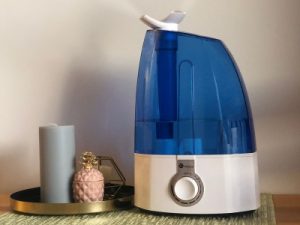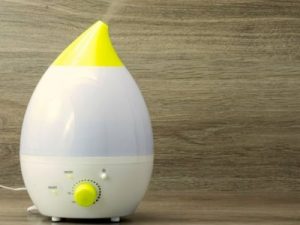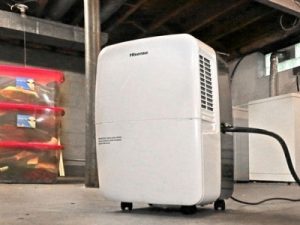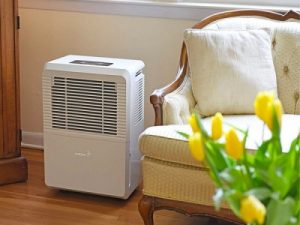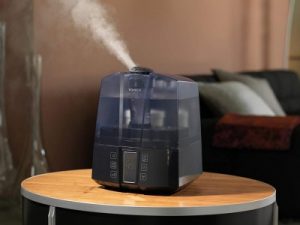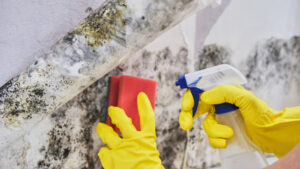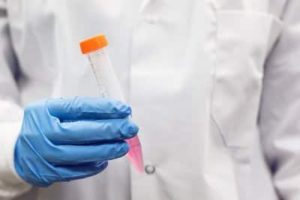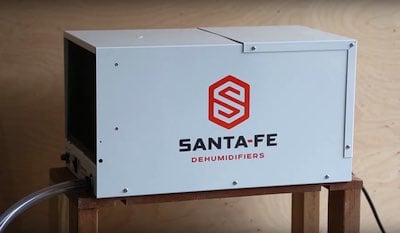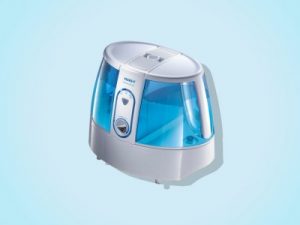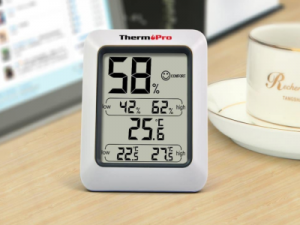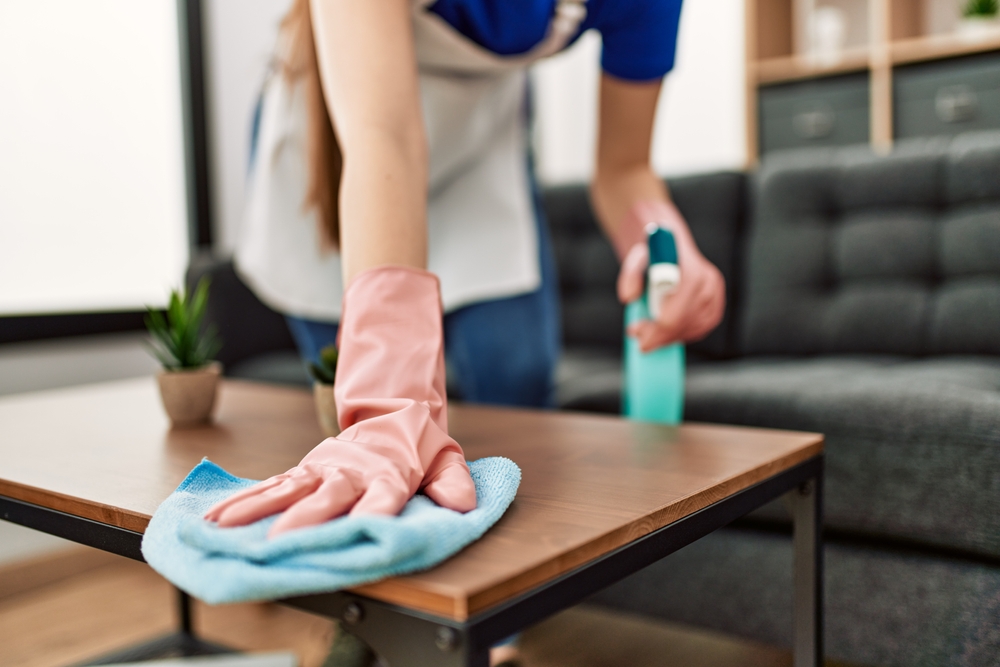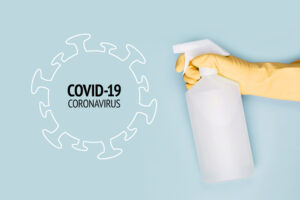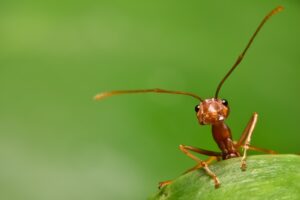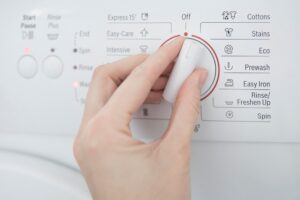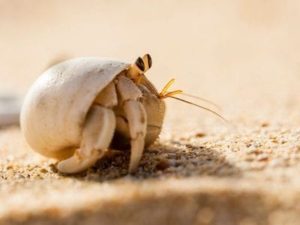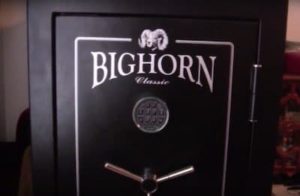
One of the most rewarding and exciting experiences for any poultry owner is hatching your own chickens. The joy is even better when most of your eggs make it through the entire process of hatching.
What is the best incubator temperature and humidity for chicken eggs, then? In general, the temperature in an incubator must be maintained at around 99 and 102 degrees Fahrenheit. The levels of humidity must be around 50% and 55% that can be increased to around 65% for the last 3 days of incubation.
If you prefer to incubate eggs yourself, you have to make yourself familiar with the right workings of temperature and humidity in an incubator.
Go to another article I wrote about the best hygrometer that you can use to measure the humidity inside an incubator if you want to know more about hygrometers for incubators. You will find a curated list of devices that real people are using.
This is by far the most critical aspect of hatching as it can make a big difference between the eggs staying as eggs or hatching into cute chicks.
When the incubator is kept at improper humidity and temperature levels for a long period of time or if there is a constant change in the levels, this can interfere with the embryos normal development and growth. Sadly, this can also make the embryo stop from developing any further.
Although it may sound daunting, as long as you are using a good quality incubator with a humidity and temperature alarm, a hygrometer and thermometer, and you know how to perfect the temperature and humidity, you can look forward to a more pleasant hatching experience instead of a panic-stricken one!
Humidity and Temperature
As mentioned earlier, the temperature in the incubator must stay at 99 and 102 degrees Fahrenheit. Never try to overheat your hen incubator in the hopes of speeding up this process.
It will only result to the sped up development of embryo but this will lessen the chance of hatchability that may lead to abnormal chicks.
If a short cooling period is experienced in the incubator, you don’t have to worry because a brief period doesn’t cause any harm most of the time. However, longer periods of low temperatures may result to dead embryos.
The levels of humidity must be around 50% and 55% before it is increased to around 65% for the last 3 days of incubation. Putting a water pan below the egg tray offers the much needed moisture in many incubators.
You might need to put warm water every now and then. You can adjust the humidity by decreasing or increasing the chicken incubator’s ventilation.
Incubator Placement
In the same way that the humidity and temperature inside your incubator affects your eggs, temperature outside it also does the same. You might want to try putting the incubator in an area with a temperature of around 69.8 and 75.2 degrees Fahrenheit and is not prone to varying temperatures, drafts, or direct sunlight.
Incubator Features and Equipment
Since humidity and temperature inside the incubator is crucial to a successful hatching of chicken eggs, you need to use an incubator that will let you control and monitor these two with ease.
Incubators of good quality must have a powerful control for temperature wherein the temperature could be easily adjusted with the accuracy almost spot on.
Since the humidity and temperature can change with no warning that can lead to major issues with the process of hatching, it is a must for the incubator to have a humidity and temperature alarm that will alert you once the hatching humidity or temperature goes out of ideal range. This will let you make the necessary adjustments before it gets too late.
It is also important to have a very accurate hygrometer and thermometer for regular measurement of humidity and temperature during the entire process to guarantee that they remain at their optimum level at all times. To stay on the safe side, you might want to check the thermometer you are using against another thermometer because you can never be so sure on this one.
Expert Tips to Incubate Chicken Eggs
Below are some guiding principles you can follow incubate your chicken eggs properly:
- Environmental impact
Your chicken eggs require a rather specific environment for proper development and successful hatching. Temperature is probably the most critical parameter. To facilitate the proper gas exchange and aeration between the outside world and the embryo in the egg, the eggs should never be held inside a tightly sealed container.
Typically, chicken eggs hatch after an incubation period of 21 days. Consider this number as just a target and not an absolute. In the last 3 days of incubation, the eggs must be ideally placed in a more humid and slightly cooler environment to ensure successful hatching. Reducing the temperature can help account for the additional heat bigger embryos tend to produce as the result of metabolism. The higher humidity can help prevent the chicks from being stuck to the membrane found in the egg shell while they are breaking out of it.
- Mindful manipulation
In the same way that humidity and temperature are essential to maximize the hatch, you can enjoy the best results if you move around the eggs regularly. Changing the attitude of an egg helps in exercising the embryo and preventing it from getting stuck to the shell. Generally, eggs must be incubated with the pointed ends down. However, it is also crucial to tip or turn the egg back and forth for at least two times daily. The more often you turn the eggs, the better. During hatching phase, it is best that you lay the eggs on the sides.
- Natural incubation
Probably the easiest method for hatching and incubating fertile chicken eggs is by letting a broody hen to do the job for you.
What is a broody hen, though? A broody hen is a hen that has gone through changes induced by progesterone that makes it want to sit on the eggs in order to hatch them and continuing to brood the hatched chicks.
The broody hen will handle the warming and ventilating of the eggs as well as take charge of chick-rearing and turning duties. Remember that not every hen will become a broody hen.





